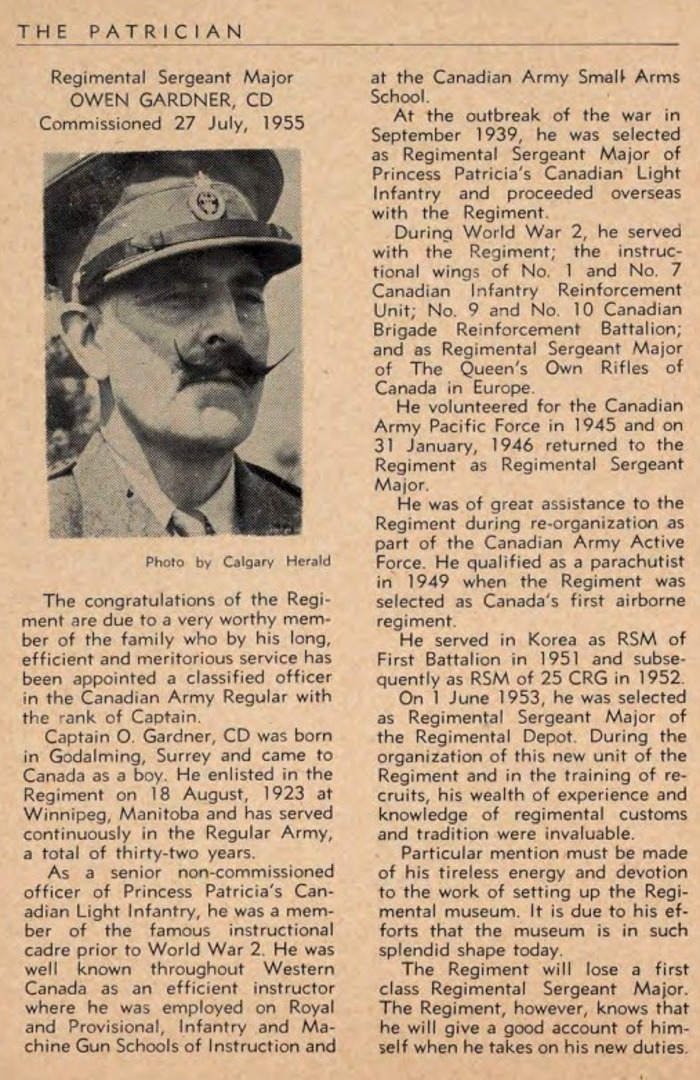Of Subsisting Troops (Saxe)
Topic: Army Rations
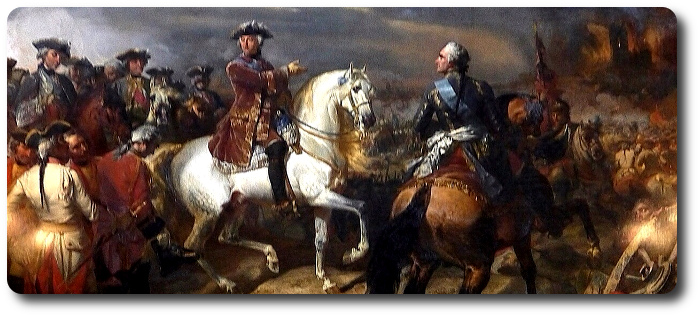
Of Subsisting Troops
Reveries, or Memoirs, Concerning the Art of War, by Maurice Count de Saxe, Marshal-General of the Armies of France (Translated from the French, MDCCLIX)
 The practice of troops messing together contributes much to good order, oeconomy, and health debauchery and gaming are thereby prevented, and the soldier is, at the same time, very well maintained. This institution, however, is not without its inconveniences; because a man harasses himself after a march in search of wood, water, &c.; is tempted to maraud; is perpetually dirty, and ill dressed; spoils his clothes by the carriage from one camp to another of all the necessary utensils for his mess; and likewise impairs his health by the extraordinary fatigues which unavoidably attend it. Yet these inconveniences are not without a remedy; for the troops being, according to my disposition, divided into centuries, a sutler, provided with four carts drawn each by two oxen, should be appointed to every one, and furnished with a pot large enough to hold a sufficient quantity of soup for the whole century, of which every man should receive his proportion in a wooden porringer, together with some boiled meat at noon, and roasted in the evening; and officers should attend, to see that they be not imposed upon, or have cause to complain. The profit allowed to be made by these sutlers, should arise from the sale of liquors, cheese, tobacco, and the skins of the cattle which they kill; and which they are also to maintain with the herbage and provisions that will be always found in the neighbourhood of the army.
The practice of troops messing together contributes much to good order, oeconomy, and health debauchery and gaming are thereby prevented, and the soldier is, at the same time, very well maintained. This institution, however, is not without its inconveniences; because a man harasses himself after a march in search of wood, water, &c.; is tempted to maraud; is perpetually dirty, and ill dressed; spoils his clothes by the carriage from one camp to another of all the necessary utensils for his mess; and likewise impairs his health by the extraordinary fatigues which unavoidably attend it. Yet these inconveniences are not without a remedy; for the troops being, according to my disposition, divided into centuries, a sutler, provided with four carts drawn each by two oxen, should be appointed to every one, and furnished with a pot large enough to hold a sufficient quantity of soup for the whole century, of which every man should receive his proportion in a wooden porringer, together with some boiled meat at noon, and roasted in the evening; and officers should attend, to see that they be not imposed upon, or have cause to complain. The profit allowed to be made by these sutlers, should arise from the sale of liquors, cheese, tobacco, and the skins of the cattle which they kill; and which they are also to maintain with the herbage and provisions that will be always found in the neighbourhood of the army.
To carry this into execution, may at first appear a matter of some difficulty; but very little application will be necessary to render it both practicable, and of general use. Soldiers, when they were to go on parties, might carry as much roasted meat as would serve them for one or two days, without any manner of incumbrance. The quantity of wood, water, and kettles, which is now required to make soup for an hundred men, is more than would be sufficient for a thousand in the way I propose and the soup, at the fame time, be composed of much better ingredients: besides, the soldiers would thus avoid all unwholesome things which produce disorders, such as hog's flesh, unripe fruit, &c.; and the officers would only have occasion to attend their meals, at which one at least should be always present, to take care that they had justice done them. On forced marches, or at such times when the baggage could not be brought up, the cattle upon the spot should be distributed amongst the troops, and wooden spits made to roast their flesh; which is an expedient accompanied with no embarrassment whatsoever, and lasts only for a few days. But let us compare our method with this, and we shall soon find which is the most preferable. It is in use amongst the Turks, who are by that means at all times well nourished, insomuch that their bodies, after an engagement, are very distinguishable from those of the Germans, which are pale and meagre. There is also another advantage resulting from it in certain cases; that of managing the soldier's purse, by furnishing him with his pay, and at the fame time selling him his provisions; for instance, when contributions are to be raised in countries abounding in cattle, like Poland and Germany, that the inhabitants may be able to furnish what is required, one half must be taken in provisions, the other in money, and the former fold to the troops. Thus the soldier's pay makes a perpetual circulation, and. there will likewise remain an overplus of both money and provisions. It is moreover of great service in the consumption of such magazines as you have been obliged to make; for by fending your troops to subsist upon them, the loss to the state will be much diminished, and no umbrage, at the same time, given to the men.
Bread should never be given to soldiers in the field, but they should be accustomed to biscuit; because it is a composition that will keep without spoiling five years or more in the magazines. It is very wholesome, and a soldier can carry a sufficient quantity of it for even or eight days without any inconvenience. We need only apply to such officers as have served amongst the Venetians, to be informed of the general use, as well as convenience of it. The Muscovite kind, called soukari, is the best, because it does not crumble : it is made in a square form, of the size of a small filbert; and, as it takes up but little room, will not require such numbers of waggons to convey it from place to place as are necessary for bread. The purveyors indeed very industriously propagate the opinion, that bread is better for a soldier: but that is altogether false, and proceeds only from a selfish regard to their own interest; for they do not more than half-bake it, and blend all forts of unwholesome ingredients; which, with the quantity of water contained in it, renders the weight and size double. Add to this, their train of bakers, servants, waggons, and horses, upon all which they make a large profit : they are also a great incumbrance to an army ; must be always furnished with quarters, mills, and detachments to guard them. In short, it is inconceivable how much a general is perplexed with the frauds they commit, the embarrassments they create, the diseases they occasion by the badness of their bread, and the extraordinary trouble they give to the troops. The erecting of ovens is a circumstance which, in general, discovers so much of your intentions to the enemy, that it is needless to fay any more about it. If I undertook to prove every thing which I advance by fact, I should not be able to dismiss this subject so soon; but, upon the whole, I am convinced, that a great many misfortunes have proceeded only from this evil, which have been falsely ascribed to other causes.
It would be proper sometimes to with-hold even biscuit from the men, and give them corn in its stead, which, after having first bruised, and made into paste, they must learn to bake upon iron plates. Marshal Turenne, in his memoirs, makes some mention of this custom ; and I have heard it observed by other great commanders, that they sometimes refused their troops bread, even when they had abundance of it, in order to inure and reconcile them to the want of it. I have made campaigns of eighteen months length with troops that were, during the whole time, without it, and yet never discovered the least dissatisfaction. I have also made several others with such as were accustomed to it, and who were so far from being able to submit to the want of it, that the intermission of it for only a day was attended with the greatest inconveniences; a circumstance that rendered every enterprise in which expedition was required, impracticable.
In regard to flesh-meat, there is hardly a possibility of being reduced to a want of it; for cattle can keep up with an army very well, and cost nothing in conveyance; and if we grant that an ox weighs 500 pounds, and that every man is to be allowed but half a pound, one ox per day will maintain a thousand men, and fifty will consequently be sufficient for 50,000: suppose then that a campaign lasts 200 days, the number of oxen required will amount to no more than 10,000, which will follow the army, and find pasture sufficient to support them in all places. They should be assembled in different herds, or repositories, and successively advanced as occasion may require.
I cannot omit taking notice here of a custom established amongst the Romans, by means of which they prevented the diseases and mortality that armies are subject to from the change of climates; and to which also a part of that amazing success which attended them ought to be attributed. The German armies lost above a third upon their arrival in Italy and Hungary. In the year 1718, we entered the camp of Belgrade with 55,000 men: it stands upon an eminence; the air is wholesome; the water good, and we had plenty of all necessaries: nevertheless, on the day of battle, which was the 18th of August, we could muster only 22,000 under arms; the rest being either dead, or incapable of acting. I could produce many instances of this kind, which have happened amongst other nations, and can be only imputed to the change of climate. The use of vinegar was the grand secret by which the Romans preserved their armies; for as soon as that was wanting amongst them, they became as much subject to diseases as we are at present. This is a fact that few perhaps have attended to, but which is notwithstanding of very great importance to all commanders, who have a regard for their troops, and any ambition to conquer their enemies. In regard to the manner of using it, the Romans distributed it by order amongst the men, every one receiving a sufficient quantity to serve him for several days, and pouring a few drops of it into the water which he drank. To trace the cause of so salutary an effect, is what I leave to the adepts in physic, contenting myself with having related a simple fact, the reality of which is unquestionable.

Posted by regimentalrogue
at 12:01 AM EST





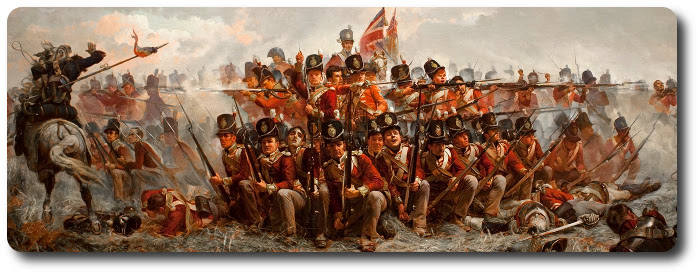
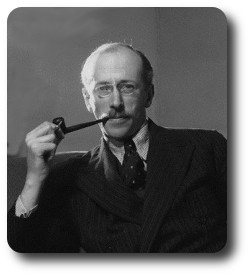 [In the following article, Captain Liddell Hart, who has for long been regarded as one of the most brilliant military critics in Britain, examines the basic problem of modern warfare with results which both illuminate and vindicate the course taken by the Allied High Command on the Western Front.]
[In the following article, Captain Liddell Hart, who has for long been regarded as one of the most brilliant military critics in Britain, examines the basic problem of modern warfare with results which both illuminate and vindicate the course taken by the Allied High Command on the Western Front.]

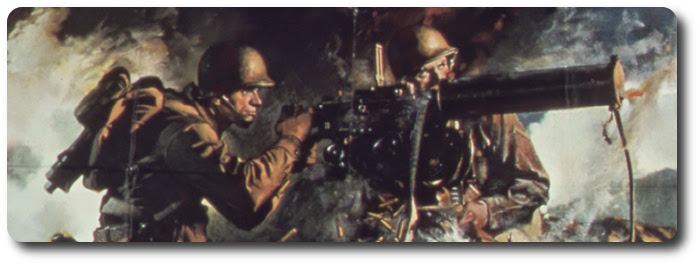
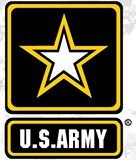 The Montreal Gazette, 5 March 1951
The Montreal Gazette, 5 March 1951

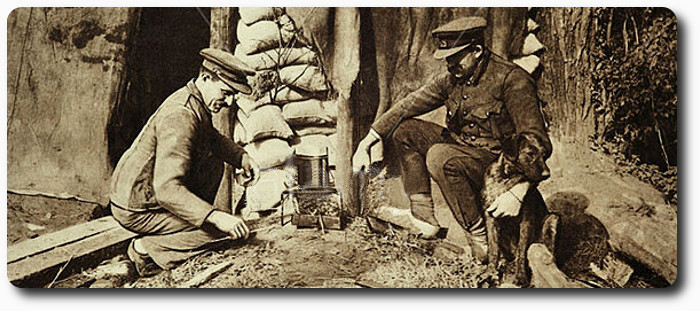
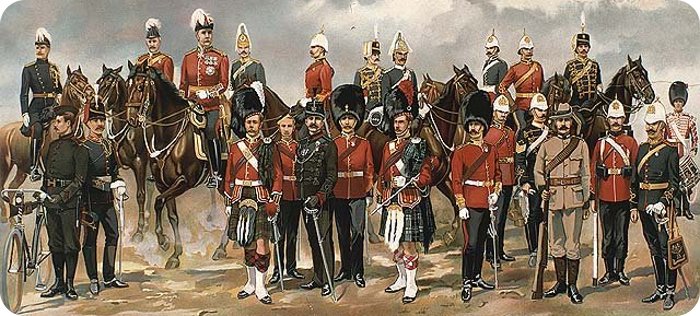
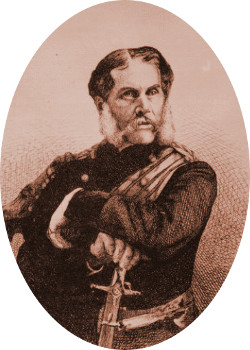 The report of the state of the Dominion Militia, presented by
The report of the state of the Dominion Militia, presented by 
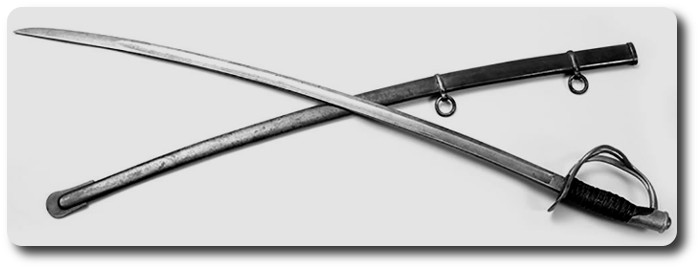
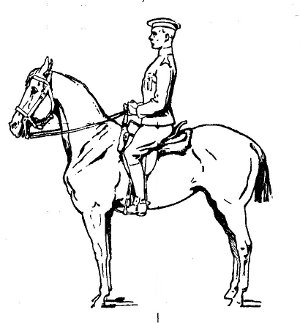 Montreal, Sept, 18—A militia order just issued by
Montreal, Sept, 18—A militia order just issued by 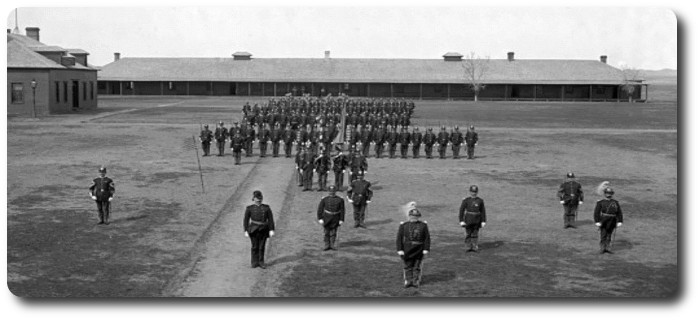

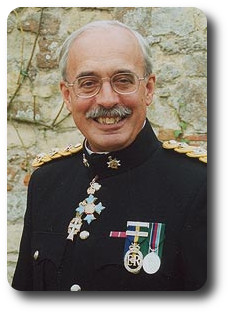
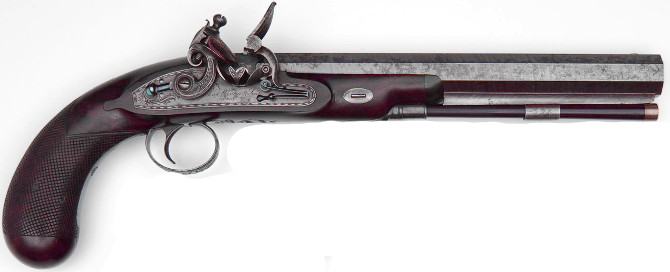

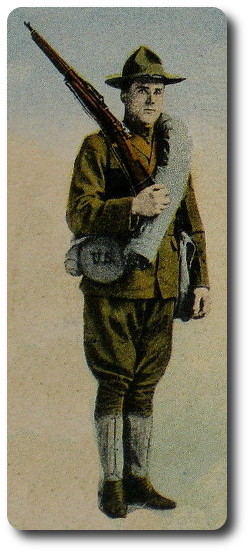 Washington.—The heaviest laden pack animal of the army is the doughboy himself. Inch for inch for size or pound for pound for weight, the buck private of infantry carries on his back into battle double the burden handled by horses or mules or motor truck.
Washington.—The heaviest laden pack animal of the army is the doughboy himself. Inch for inch for size or pound for pound for weight, the buck private of infantry carries on his back into battle double the burden handled by horses or mules or motor truck.
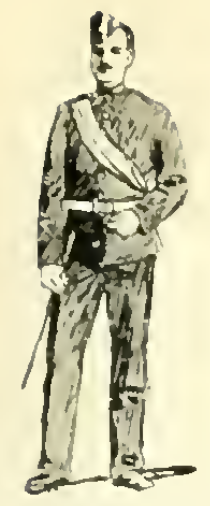 Another matter of special importance in the organization of the volunteer militia is the system by which men are enrolled. There is something radically wrong when we find from year to year that such a large proportion of the men are recruits. It is bit a very small proportion of the number of those that are enrolled that serve out their three years. A check should immediately be put on enlisting that unsettled class in the community that are here to-day and gone to-morrow. They only join with the object of getting a few days' pay and rations that are to be had at the period of the annual drills, having no love for the service at heart. They lower the tone of the rank and file, and hinder that esprit de corps which cannot be too strongly upheld. They are untidy and careless about their persons, and will do a uniform more damage in one season than a good man would do to it in three years. No decent man will wear a uniform after one of them. The expenditure of money and instruction upon them is a simple waste. Officers are naturally very eager to bring up the ranks to their proper strength at the period of annual drill, but the practice of filling them with these make-shifts should be discouraged, and none but men likely to serve out their full term should ever be enrolled. The men who do credit to the service are not those who join for considerations of pay, and en effectual means of shutting out those who would enroll from mercenary motives alone would be to make the pay progressive. Recruits should only receive 25 cents per diem, second-year men 50 cents per diem, and third-year men and over 75 cents per diem. This plan, if adopted, would guard against the enlistment of any but proper men. It would give to a three-year man the same total pay as if he had the 50 cents per diem each separate year, and after the three years it would be a reward to long service men, and an inducement to continue on in the service. A man after three years of instruction ought to be worth more than a recruit.
Another matter of special importance in the organization of the volunteer militia is the system by which men are enrolled. There is something radically wrong when we find from year to year that such a large proportion of the men are recruits. It is bit a very small proportion of the number of those that are enrolled that serve out their three years. A check should immediately be put on enlisting that unsettled class in the community that are here to-day and gone to-morrow. They only join with the object of getting a few days' pay and rations that are to be had at the period of the annual drills, having no love for the service at heart. They lower the tone of the rank and file, and hinder that esprit de corps which cannot be too strongly upheld. They are untidy and careless about their persons, and will do a uniform more damage in one season than a good man would do to it in three years. No decent man will wear a uniform after one of them. The expenditure of money and instruction upon them is a simple waste. Officers are naturally very eager to bring up the ranks to their proper strength at the period of annual drill, but the practice of filling them with these make-shifts should be discouraged, and none but men likely to serve out their full term should ever be enrolled. The men who do credit to the service are not those who join for considerations of pay, and en effectual means of shutting out those who would enroll from mercenary motives alone would be to make the pay progressive. Recruits should only receive 25 cents per diem, second-year men 50 cents per diem, and third-year men and over 75 cents per diem. This plan, if adopted, would guard against the enlistment of any but proper men. It would give to a three-year man the same total pay as if he had the 50 cents per diem each separate year, and after the three years it would be a reward to long service men, and an inducement to continue on in the service. A man after three years of instruction ought to be worth more than a recruit.
 The practice of troops messing together contributes much to good order, oeconomy, and health debauchery and gaming are thereby prevented, and the soldier is, at the same time, very well maintained. This institution, however, is not without its inconveniences; because a man harasses himself after a march in search of wood, water, &c.; is tempted to maraud; is perpetually dirty, and ill dressed; spoils his clothes by the carriage from one camp to another of all the necessary utensils for his mess; and likewise impairs his health by the extraordinary fatigues which unavoidably attend it. Yet these inconveniences are not without a remedy; for the troops being, according to my disposition, divided into centuries, a sutler, provided with four carts drawn each by two oxen, should be appointed to every one, and furnished with a pot large enough to hold a sufficient quantity of soup for the whole century, of which every man should receive his proportion in a wooden porringer, together with some boiled meat at noon, and roasted in the evening; and officers should attend, to see that they be not imposed upon, or have cause to complain. The profit allowed to be made by these sutlers, should arise from the sale of liquors, cheese, tobacco, and the skins of the cattle which they kill; and which they are also to maintain with the herbage and provisions that will be always found in the neighbourhood of the army.
The practice of troops messing together contributes much to good order, oeconomy, and health debauchery and gaming are thereby prevented, and the soldier is, at the same time, very well maintained. This institution, however, is not without its inconveniences; because a man harasses himself after a march in search of wood, water, &c.; is tempted to maraud; is perpetually dirty, and ill dressed; spoils his clothes by the carriage from one camp to another of all the necessary utensils for his mess; and likewise impairs his health by the extraordinary fatigues which unavoidably attend it. Yet these inconveniences are not without a remedy; for the troops being, according to my disposition, divided into centuries, a sutler, provided with four carts drawn each by two oxen, should be appointed to every one, and furnished with a pot large enough to hold a sufficient quantity of soup for the whole century, of which every man should receive his proportion in a wooden porringer, together with some boiled meat at noon, and roasted in the evening; and officers should attend, to see that they be not imposed upon, or have cause to complain. The profit allowed to be made by these sutlers, should arise from the sale of liquors, cheese, tobacco, and the skins of the cattle which they kill; and which they are also to maintain with the herbage and provisions that will be always found in the neighbourhood of the army. 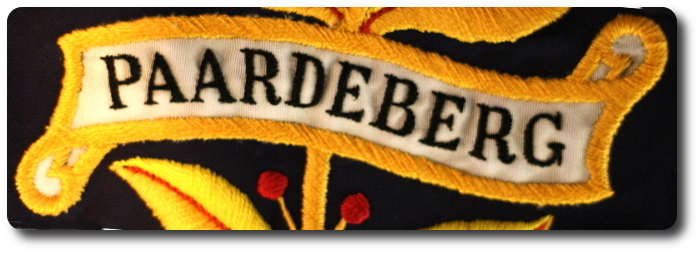
 Boer Commando Reduced to Desperate Straits Before They Would Give In
Boer Commando Reduced to Desperate Straits Before They Would Give In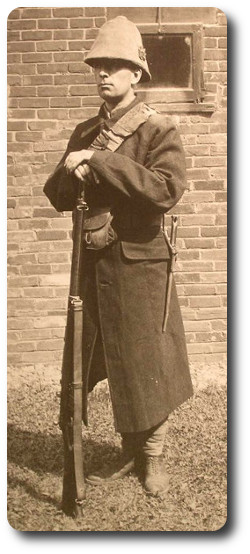 "Brigadier General MacDonald sent from his bed a note to Lord Roberts, reminding him that Tuesday was the anniversary of that disaster, which, we all remembered, he has by example, order and threat himself, done his best to avert, even while the panic had been at its heights; Sir Henry Colville submitted a suggested attack backed by the same unanswerable plea.
"Brigadier General MacDonald sent from his bed a note to Lord Roberts, reminding him that Tuesday was the anniversary of that disaster, which, we all remembered, he has by example, order and threat himself, done his best to avert, even while the panic had been at its heights; Sir Henry Colville submitted a suggested attack backed by the same unanswerable plea.
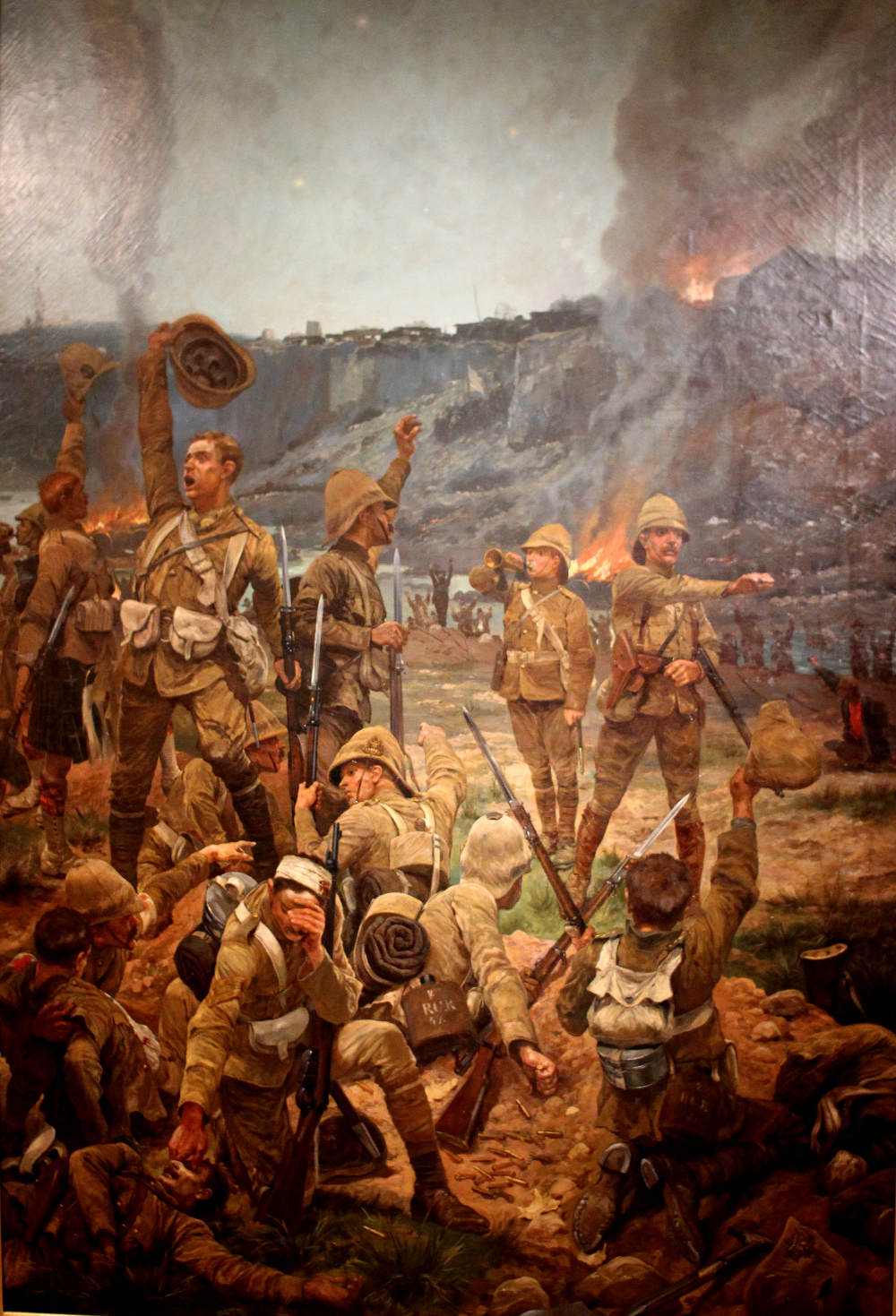

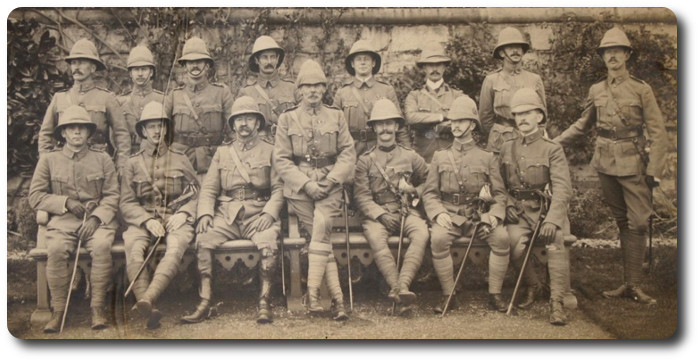

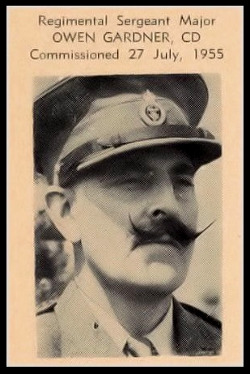 Calgary, Alt.—(CP)—The regimental sergeant major of the Princess Patricia's Canadian Light Infantry now is Capt. Owen Gardner. He was commissioned and named captain without going through the intermediate ranks of second and first lieutenant.
Calgary, Alt.—(CP)—The regimental sergeant major of the Princess Patricia's Canadian Light Infantry now is Capt. Owen Gardner. He was commissioned and named captain without going through the intermediate ranks of second and first lieutenant.